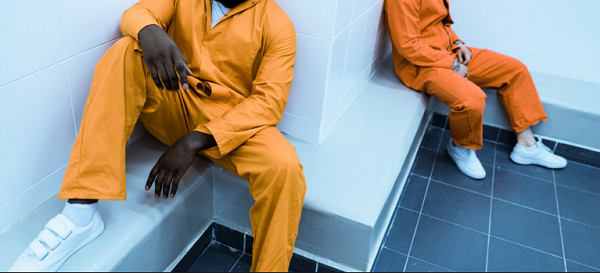UN panel seeks change in ways Ottawa handles its migrant detainees
A group of experts from the United Nations is alarmed by the federal government’s proposal to start holding migrants and asylum seekers, many with no history of criminal behaviour, in federal penitentiaries.
The three-person panel, which arrived in Canada this month for a sweeping tour of detention practices at 17 federal and provincial facilities, is calling for changes to the way the government handles its so-called migrant detainees. The majority of them are people who have violated immigration laws and have also been deemed by the Canada Border Services Agency to be flight risks or missing paperwork. In only a small number of cases do they face allegations of being a danger to the public.
In preliminary findings released Friday, the UN panel called for limits on how long migrants can be detained, pointing out that some are currently held for years; an end to keeping children and minors in special immigrant detention centres, some in what one member described as “prison-like” conditions; and an oversight mechanism for the CBSA’s detention-related activities, during which the panel argued detainees are often retraumatized or struggle to access legal aid.
“We should remember that these people have not been charged with any crime,” said Matthew Gillett, a member of the working group on arbitrary detention. “We heard that 90 per cent of these detainees are not actually considered to pose public security threats.”
The recommendations — which will eventually be part of a report to the UN Human Rights Council — add to growing criticism in recent months of the way in which the government detains migrants. Human rights campaigners recently pushed the provinces to stop housing migrant detainees in maximum-security jails, but the federal government then announced a plan to step in with its own facilities, though it referred only to “high-risk” individuals.
In the recent federal budget, the government committed $325 million over five years to upgrade immigration holding centres — there are currently three in Canada — to “enable secure detainment of high-risk individuals.” It also said it plans to change legislation to allow federal jails to act as a “supplement.”
According to the Canada Border Services Agency, as of April 12 there were 12,796 people who were living in the community with alternatives to detention, which include things like telephone reporting and electronic monitoring. There were another 195 people detained within federal immigration holding centres; and 47 within provincial prisons or local police agency holding cells.
Federal officials have repeatedly defended detention, calling it a last resort. Of those in detention or on an alternative to detention, the agency says almost 98 per cent are released on conditions and 1.5 per cent are in its own less restrictive immigration holding centres, while less than 0.5 per cent are in a provincial correctional facility.
But Julia Sande, a lawyer for Amnesty International Canada, said the international panel joins a growing chorus of anti-detention voices that has recently grown to include former Liberal ministers Lloyd Axworthy and Allan Rock.
While Amnesty has pushed for an end to detention entirely, Sande points out that using prisons is a step in the opposite direction. Since there is no current limit to immigration detentions, she argues people are subject to the conditions of prison without its usual guardrails.
“When we talk about federal prisons, those have, up until now, been used for people who have been convicted of a criminal offence and they have a sentence, and so they have a date of release to count down to,” she says. “People in immigration detention don’t have that, and they often talk about just how difficult that is to not be able to count down to a release.”
The UN panel returned to Canada after an almost 20-year absence, and said it found many areas of the detention system that have improved since 2005, pointing out that excessive force during arrests is “relatively rare” and the number of incarcerated youth has plunged since the last visit. The panel visited Ontario, Alberta, B.C. and Quebec and in addition to speaking with politicians, lawyers and members of civil society, members interviewed 103 people who had been detained.
But serious concerns remain, particularly for members of marginalized groups. In addition to flagging migrant detention, the panel also pointed to the high rate of incarceration of Indigenous people that persists, particularly among women. It also flagged a high rate among people of African descent.
The panel also called for better rehabilitation supports to reduce recidivism, including housing, health care and employment.
With files from Nicholas Keung
This article was first reported by The Star













